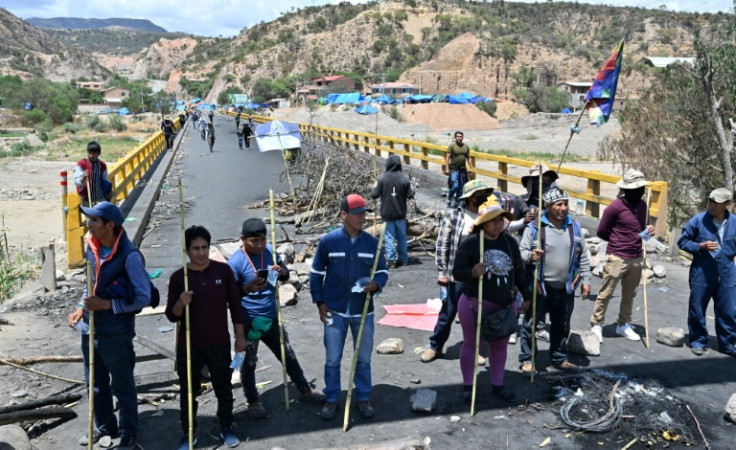
In an address to the nation, Arce said there could be "no dialogue" unless the roadblocks were lifted, saying the pressure tactics used by Morales's supporters to try to prevent his arrest on rape charges were strangling the economy.
He warned that if his appeal went unheeded the government "will exercise its constitutional powers to safeguard the interests of the Bolivian people."
Arce did not say whether he was considering using the military to clear the roads or declaring a state of emergency, as demanded by some Bolivians to end the unrest.
Morales said he interpreted the remarks as a threat.
"Instead of calling for dialogue to resolve the conflict (...) Arce launches threats against the mobilized people. Any act of violence will be his sole responsibility," he wrote on X.
Morales, who governed Bolivia from 2006 to 2019, is under investigation for rape, human trafficking and smuggling over his alleged relationship with a 15-year-old girl in 2015.
Bolivia's first Indigenous president claims the charges were trumped-up to try to prevent him returning to power.
His supporters have blocked roads around the country, particularly in his central political stronghold of Cochabamba, and clashed repeatedly with police who try to clear them.
Arce said 61 police officers and nine civilians had been injured in the clashes.
The protests have aggravated widespread shortages of fuel and basic goods and caused spiraling prices -- one of the protesters' key grievances -- to further rocket.
Arce estimated the cost of the roadblocks at over $1.7 billion dollars and said they were "having terrible effects on families" and were "strangling the economy, preventing the normal supply of fuel and increasing food prices."
The standoff between Morales and Arce escalated dramatically on Sunday after Morales accused state agents of trying to assassinate him while driving near Cochabamba.
A video posted on social media showed the pick-up truck in which he was travelling riddled with bullet holes and the driver with blood on his head.
The government says police fired on his vehicle after it ran a checkpoint and police came under gunfire from a vehicle in Morales's convoy.




